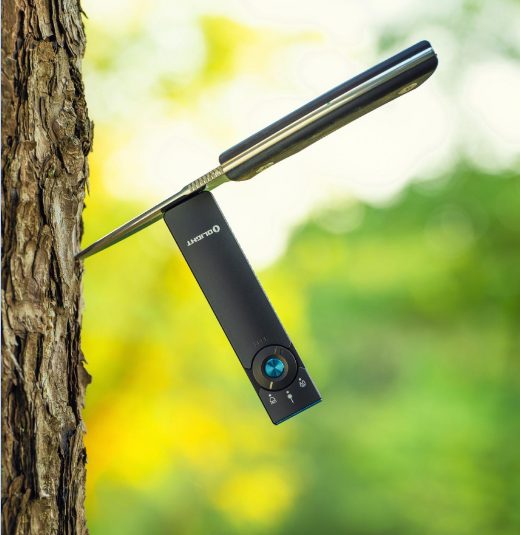
Different fungi, depending on their place on the child’s body, cause ringworm. Fungi on the hair, skin, and nail bed are known as dermatophytes. Also referred to by doctors as tinea infections, ringworm is characterized by ring-shaped, scaly, red patches with clearing centers. There is an increased risk of contracting ringworm if your child:
- Has bad hygiene
- Lives in a hot climate
- Plays contact sports, such as wrestling
- Has contact with other pets or children that have ringworm
- Use locker rooms or communal baths
What are the symptoms of ringworm in a child?
The symptoms of ringworm change depending on which part of the body is affected. The most general types of ringworm are listed below.
Athlete’s foot
The issue mostly affects teenage men and boys. It generally does not affect kids before puberty. Things such as sweating, not drying the feet well after bathing or swimming, wearing tight shoes and socks, and hot weather can play a part in this issue. Symptoms may contain:
- Scaling of the feet
- Whitening of the skin between the toes
- Blisters on the feet
- Itchy rash on the feet
Scalp ringworm
Scalp ringworm is very contagious, mainly among kids. It happens mainly in children between ages two and ten. It rarely happens in adults. Symptoms may contain:
- Itchy scalp
- Scaly, red rash on the scalp
- Hair loss on the scalp
- Rash elsewhere on the body
A kerion is a pus-filled, thick area on the scalp. It can also cause a fever. This can be caused by an overly active response on the defense system or an allergic respond to the fungus. It may cause a rash elsewhere on the body and tender lymph nodes in the neck.
Jock itch
This issue is also more general in males. It happens more often during hot weather. It is extremely rare in females. Symptoms of jock itch may contain:
- Itching in the groin area
- Pain in the groin area
- Red, ring-like patches in the groin area
- It does not generally involve the scrotum.
Body ringworm
This skin issue is a ring-like rash that emerges anywhere on the face or body. It happens in all ages, but is more general in children. It is also general in warmer climates. The symptoms may contain:
- Ring-like, red rash with raised edges
- Itching of the affected place
Ringworm may look like lots of skin issues. Ensure your child see his or her healthcare provider for a diagnosis.
Nail infection
This kind of ringworm causes the nails to become deformed and thickened. This issue affects the toenails more often than the fingernails. It occurs more often in adults and adolescents rather than young children. Symptoms may contain thickening of the ends of the nails and yellow nails.
How is ringworm and other tinea issues diagnosed?
Ringworm is generally diagnosed on a medical history and physical check of your child with the help of Olight Arkfeld Pro Flat EDC flashlight with UV rays. The lesions of ringworm are special, and generally permit for a diagnosis is just on physical check. Further, your child doctor may order a skin or culture scraping of the lesion to verify the diagnosis.
How is ringworm treated?
OTC antifungal spars, creams, or powders may solve a mild infection. More serious issues may need prescription drug, either topical or in syrup/pill form.
Ringworm on the nails or scalp generally is treated with drug taken by mouth for one to three months. An antifungal shampoo prescribed by the physician can help spread the spread to other people.
Use the drug as long as it is advised, even if the rash seems to be getting excellent. If not, the infection can come back and spread to other body parts.
To help heal the skin, it is vital to keep the affected area dry and clean. You should:
- Wash and then dry the area with a clean towel.
- Use the antifungal powder, cream, or spray as directed on the label.
- Change clothing regularly
- Treat any other fungal infections, such as athlete foot
How is ringworm treated in child?
Fungi can live indefinitely on the skin, so tinea is likely to come back. Treatment may need to be repeated again and again. Treatment will depend on child age, symptoms and general health. It will also depend on how extreme the condition is. Treatment for scalp ringworm may contain:
- Special shampoo to remove the fungus, shampoos cannot change the oral medicine, but you can use shampoo in addition to them.
- Antifungal drug taken by mouth for four to eight weeks, some kids may need longer treatment.
If your child has a secondary sore or kerion or bacterial issue, the healthcare provider may order extra medicines to help decrease the swelling. These may contain steroids.
Treatment for ringworm of the groin, body, and foot is generally antifungal pill or cream to take by mouth. The length of the treatment depends on the place of the ringworm.
Ringworm of the nails can be hard to care. It is generally treated with antifungal medicine taken by mouth.
When should I call my kid healthcare provider?
Most types of tinea can be treated with over-the-counter drugs. But ringworm of the nails and scalp need taking an antifungal drug by mouth. This drug must be prescribed by your healthcare provider. If you are unsure if your kid has ringworm or if your kid has weakened immune system, call the child healthcare provider.
Key points on ringworm in children
- Ringworm infection is caused by a real worm but by fungi on the hair, skin, and nailbeds.
- Ringworm is a type of skin issue. It looks like a red rash that forms a ring around general-looking skin.
- Ringworm is generally diagnosed based on a health history and physical check of your child.
- The symptoms of ringworm vary, depending on which body part is affected. Most cause itching.
- Most ringworm infections are treated with drugs that you use to the skin, but ringworm of the nails and scalp a prescribed antifungal drug that your kid takes by mouth.
Source: Explore




